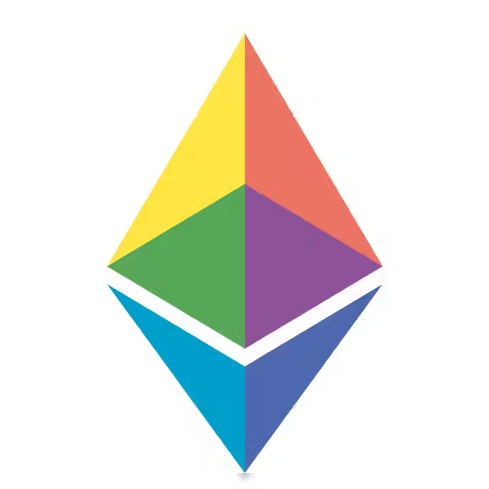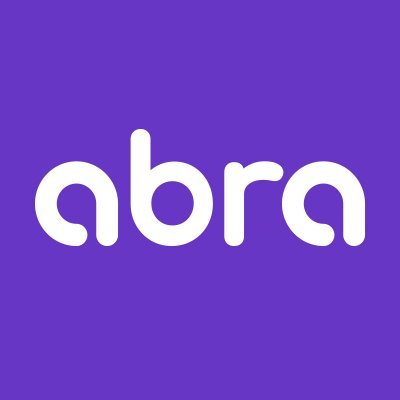The story behind Magic Eden's creation of the Rune trading platform
Original Title: Bitcoin's next gen tokens are here. Inside the Silicon Valley hacker house where 17 coders helped build the new memecoin market
Source: CNBC
Translation: BitpushNews Yanan
In the eastern foothills of San Jose, California, 17 programmers from the well-known Bitcoin NFT trading platform Magic Eden are gathering for a week-long hackathon to prepare for the upcoming Bitcoin halving. Their workspace is somewhat special—they rented a spacious four-bedroom house through Airbnb, covering an area of 3,875 square feet.

Discussions about the Bitcoin halving, which occurs every four years, mostly focus on the changes in Bitcoin's issuance. However, the halving also coincides with several other significant advancements on the blockchain, including cutting-edge programming innovations—this will attract more developers and more venture capital into the Bitcoin ecosystem.
Unlike past halving scenarios, thanks to the influx of funds brought by the newly launched Bitcoin spot ETF, Bitcoin's price soared to over $73,000 in March, setting a new historical high.
"Bitcoin has never been as vibrant as it is now—what was previously missing was an active developer ecosystem," said Zedd Yin, co-founder and COO of Magic Eden.

Arcade Games and Strong Liquor
Although the temporary coder house of Magic Eden is simply furnished, it offers many thoughtful services to support the programmers' work and life.
Their daily "work perks" include classic arcade games like "Teenage Mutant Ninja Turtles" and "Street Fighter" in the living room, as well as a DIY open bar on a folding plastic table in the dining room.
More importantly, these engineers have a significant advantage while participating in the hackathon—they know exactly what they need to do. A few days before the halving, 33-year-old Yin gathered the team at this house in Northern California. The team has a clear goal: to build the best market trading platform for a new round of digital products on the Bitcoin blockchain. On Monday morning, Magic Eden's Rune platform officially launched, further solidifying its position as a leading trading platform for new Bitcoin products.
For years, competitors like Ethereum and Solana have fiercely competed with Bitcoin in blockchain functionality, leveraging their native support for smart contracts. Smart contract functionality allows developers to write programmable code snippets, bringing more possibilities to blockchain applications. As a result, developers from around the world have flocked to these blockchain platforms to build various applications.

Last year, a Bitcoin programming guru named Casey Rodarmor completely broke this situation by introducing Bitcoin's version of NFTs, now widely known as Ordinals. This innovation was used by developers as the basis for tokens issued based on Bitcoin (known as BRC-20 tokens). The launch of Ordinals initially did not attract much attention but ultimately brought Casey Rodarmor significant acclaim.
Late last Friday night, coinciding with the Bitcoin halving, Rodarmor launched his latest creation—Runes. Runes are essentially an upgraded version of BRC-20 tokens, with superior performance.
"People have great respect for Casey, believing he captured a fleeting spark," said Nic Carter of Castle Island Ventures, "therefore, expectations for Runes are very high."
From a technical perspective, Runes simply implement the issuance of exchangeable token assets on the Bitcoin base chain, which can be stablecoins, meme coins, or any other type of exchangeable tokens.
For developers, Runes offer higher efficiency compared to the current BRC-20 token standard, which is crucial. BRC-20, as a widely used exchangeable token standard on Bitcoin, has attracted significant attention. Having a widely accepted and recognized token standard is considered key to unlocking the scale of Bitcoin's decentralized finance (DeFi). DeFi is a decentralized system parallel to the traditional banking system, automatically executed through code, reducing intermediaries like lawyers and banks.
"Exchangeable tokens are indispensable for important ecosystems like Ethereum and Solana, so Runes are undoubtedly an important step in Bitcoin's development," Yin said, who previously oversaw all institutional trading products at Coinbase.
Bill Barhydt, founder of Abra, operates a company that provides a range of services for miners, including automated liquidation, and can access macro data for the entire industry. He stated that Bitcoin's own blockchain architecture (Layer 1) cannot achieve comprehensive scalability. The core issue is that Bitcoin's blockchain lacks built-in smart contract functionality, which is necessary for building complex financial ecosystems like those on Ethereum or Solana.
"BRC-20 tokens, Ordinals, and the advanced version Runes, along with sidechains like Stacks and DeFi on Bitcoin, all demonstrate strong potential for user adoption. They will greatly increase demand for Bitcoin's block space and adoption, and are expected to further drive Bitcoin's price growth in the coming years," Barhydt said.
Barhydt further pointed out, "The level and progress of new development work around Bitcoin are truly astonishing."
Venture capitalists agree with this.
"I have never seen such an aggressive pace of transactions in the Bitcoin space throughout my entire career," Carter noted in an interview with CNBC.

Surge in Interest for Bitcoin L2
Indeed, in recent months, venture capital firms have shown a significant increase in interest in these Bitcoin second-layer projects.
According to PitchBook data, in the fourth quarter of 2023, the transaction value in the cryptocurrency industry saw an increase for the first time in nearly two years, reaching $1.9 billion, a 2.5% increase compared to the previous quarter. Although there is still a significant gap compared to the $31 billion peak in 2021, funds are gradually flowing back into the field, indicating that market interest and confidence in Bitcoin are recovering.
"The Bitcoin second-layer space has undoubtedly sparked capital interest," said Muneeb Ali, co-founder of Stacks. Stacks is an open-source blockchain network that introduces smart contract functionality to Bitcoin.
As an independent blockchain network, Stacks can work in conjunction with Bitcoin. At the time of the Bitcoin halving, Stacks also completed its own upgrade, reducing transaction times to 5 seconds. Compared to Bitcoin's base chain, which has a block processing time of 10 to 30 minutes, Stacks' efficiency has significantly improved.
Ali emphasized that the attention from numerous venture capital firms further supports the view that "the Bitcoin ecosystem is preparing for growth." He also revealed that the number of projects launched based on Bitcoin has rapidly increased from 6 to over 50 in the past six months, indicating that the pace of project launches is accelerating.
A recent report from Austin's venture capital fund Trammell Venture Partners pointed out that Bitcoin startups experienced explosive growth in the pre-seed funding stage, with the number of transactions surging by 360% year-on-year.
Christopher Calicott, the managing director and founding partner of the fund, mentioned regarding the research findings, "Founders are now more willing to focus on Bitcoin development work."
Additionally, the report showed that from 2021 to 2023, early-stage startups focused on Bitcoin raised nearly $1 billion in total funding.
For example, Alpen Labs is applying advanced scaling technology known as zero-knowledge proofs to Bitcoin and is becoming active in the market. Recently, they secured $10.6 million in funding led by Ribbit Capital. Another notable second-layer solution, "Build on Bitcoin" (BOB), also successfully raised $10 million in seed funding.
Ali stated, "The innovations emerging in 2023, such as Ordinals and BRC-20 tokens, provide momentum for the rapid growth before the Bitcoin halving. They have revitalized Bitcoin's appeal and demonstrated that given the opportunity, users are more inclined to choose Bitcoin-based NFTs, assets, and applications."

Decentralized Finance (DeFi) on Bitcoin
For years, developers have been trying to add additional functionalities to Bitcoin's base chain. Barhydt stated in an interview with CNBC that the demand for decentralized finance (DeFi), particularly yield and lending functions, is a key driving force behind the development of cryptocurrency applications.
Take sidechains like Stacks as an example; they have been working to bring transaction speeds similar to Solana and competitive transaction costs into the Bitcoin ecosystem to alleviate congestion on the main chain and promote the expansion of the entire Bitcoin economy.
The launch of Runes provides these existing projects with a new growth tool. Through Runes, these projects can connect with the native lightweight token system on the Bitcoin main chain without needing to create their own independent token environments.
"Runes provide an efficient system that makes it possible to create and manage fungible tokens directly on Bitcoin. Compared to other token standards, Runes can avoid blockchain bloat and enhance scalability," commented Hong Fang, president of OKX exchange, "this is significant for scaling Bitcoin's second-layer solutions and sidechains." Hong Fang has nearly ten years of experience working at Goldman Sachs.
Ali of Stacks referred to the post-halving period as "Bitcoin Season Two."
He said, "The key to Season Two is that builders are returning to Bitcoin. Users are finally beginning to distinguish between Bitcoin as an asset and as a payment tool."
During the week-long hackathon, Yin and his team made another important discovery: they must strictly screen Airbnb listings in the future.
The house they rented was equipped with a malfunctioning outdoor gas fireplace, causing the entire house to be filled with a smell resembling a gas leak. Additionally, the house's WiFi was out of service on the first day and completely unusable. Worse still, someone in the team contracted COVID-19.
















